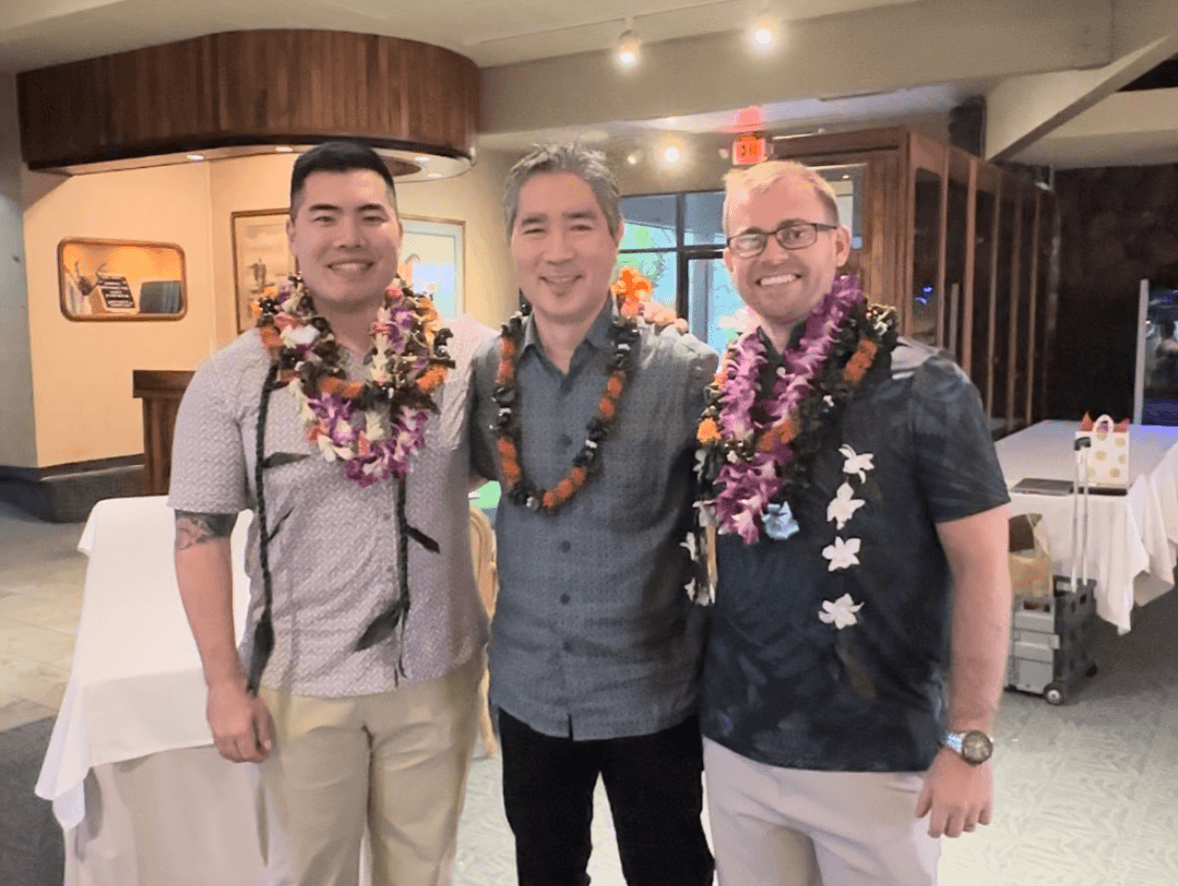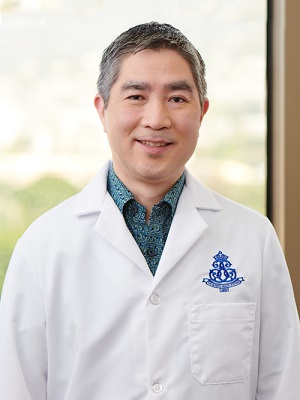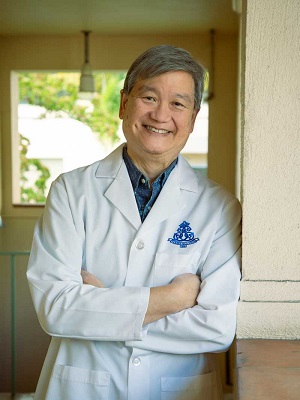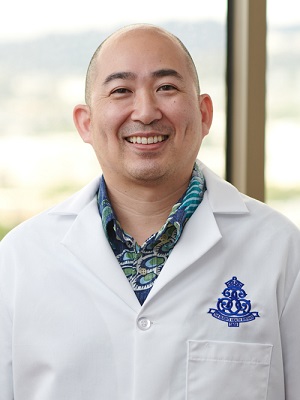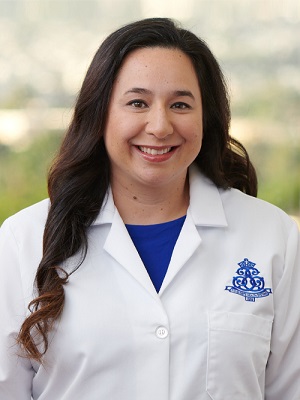
About
The year spent with the Surgical Critical Care Fellowship will be an educational and growing experience for the fellow. The fellow will be the central contact person for the residents, nurses, attendings, consultants and other ancillary services. Besides mastering the clinical knowledge of intensive care medicine, the fellow will grow as a teacher, administrator, arbitrator, and researcher. Due to the nature of critical care medicine, difficult political and ethical issues will be part of the daily experience. At some point during the year, the fellow will begin to perform in the role of an attending. This metamorphosis in role comes from gaining knowledge, respect from colleagues and self-confidence. We hope that the program will continue to train young surgeons to become dedicated surgical intensivists who will continue to carry on the spirit of teaching as well as to strive for improving patient care.
The University of Hawaii Surgical Critical Care Program strives to develop a comprehensive program to train surgeons to:
- Become clinically competent in managing complex adult critical care patients and performing the procedures necessary to administer excellent patient care.
- Develop a broad medical knowledge base in all body systems and their interactions, and to be able to develop a comprehensive treatment plan.
- Develop the leadership and communication skills necessary to organize, conduct and direct care in the intensive care unit.
- Communicate with family and assist with decision-making regarding ethical issues.
- Search for knowledge, to develop the practice of lifelong learning and to use evidence-based medicine to administer care and improve practice.
- Develop an inquiring mind and be active in research.
- Develop physician leaders to provide comprehensive, but cost effective care, and who will seek opportunities to pilot the future of critical care medicine.
The University of Hawaii Surgical Critical Care Fellowship has been accredited by the Residency Review Committee since 1993. Dr. Mihae Yu initiated the SCC Fellowship Program and was the Program Director until 2019. Dr. David Inouye became Program Director in January 2020. The fellowship program has three ACGME approved fellow positions for twelve months in length.
Core Faculty & Staff
Attendings assigned as the core teaching staff to the surgical intensive care unit are physicians related to the area of surgery and/or critical care who have been trained in a formal fellowship and have passed or are eligible for critical care boards. They are dedicated teachers with the purpose of communicating knowledge and promoting critical thinking. They are also responsible for maintaining expertise in their own knowledge base, are involved in research projects, and resolve controversies through science and research. By practicing quality of care, as well as demonstrating an ethical and humane approach to the critically ill, attendings serve as role models for young physicians in training.
Program Details
Curriculum
This fellowship is designed to train the Surgical Critical Care Fellow in adult surgical critical care. The 12-month fellowship is divided into:
- 10-11 months in adult surgical, trauma and neurosurgical ICU
- Two weeks in the Cardiac ICU
Fellows are expected to attend monthly conferences including basic science, clinical science, Journal Club, Surgery Grand Rounds, Morbidity & Mortality, Hawaii Critical Care conferences, infectious disease lectures, neuroscience lectures, respiratory therapy department ventilator workshops, and research meetings. Fellows may attend one conference in the field of critical care, usually the Society of Critical Care Medicine conference held in January/February.
Research
Research Meetings are held monthly. The Queen’s Medical Center has a well-organized research department to assist with design, implementation, statistical analysis, computer data entry, and legal counseling associated with research.
The Surgical Critical Care division is active in research and immediately incorporates the SCC Fellow into both new and ongoing research activities. The program requires one research project to be done by the SCC fellow to gain experience in designing, conducting, and publishing or presenting a study. It is expected that this experience will enhance the academic foundation the Program instills in its graduates, foster life-long learning and augment the fellow’s ability to utilize the literature in patient care activities. Monthly research meetings allow for collaboration and “brain-storming.” Over the last 12 years, most fellows have presented their research at the annual Society of Critical Care Meeting.
Rotation Schedule
Rotation Schedule
The fellows are scheduled for 24 hours in house call every 6th night, (i.e. there will be a fellow in house every 3rd night), alternating with PGY2 and/or PGY3 general surgery residents assigned to the SICU. Occasionally, we have three fellows and in this case, the call will still average every 6th night but with a mix of intervals. The residents/fellow coming off 24 hour call can be dismissed from clinical duties after morning rounds. The fellow has one 24-hour period free of all duties per week (averaged per month).
Training Site
The Queen’s Medical Center Punchbowl (Manamana) is a 100+ year old institution with 550 beds and serves as a tertiary referral center and the designated Trauma Center to the Hawaiian Islands as well as the Pacific Basin. There are two surgical intensive care units adjacent to one another; one unit has 11 beds with special expertise in trauma, general surgery and all surgical subspecialties, while the other intensive care unit has 8 beds with expertise in the neurological disorders. These two units are where the majority of SCC training takes place. When the census expands, we occupy beds in any of the other ICUs but the SCC team continues to care for the patients in the other ICUs.
Application
The Surgical Critical Care Fellowship Program is a one-year surgical critical care training program under the auspices of the University of Hawaii John A. Burns School of Medicine. The program is accredited by the Accreditation Council for Graduate Medical Education (ACGME) for three fellows per academic year. Eligible applicants must meet one of the following criteria:
- Completed at least three clinical years at an ACGME-accredited graduate medical education program with a categorical position to finish the last two years after fellowship. (Applicants must have completed three years training in Anesthesiology, Emergency Medicine, Neurological Surgery, Obstetrics and Gynecology, Orthopaedic Surgery, Otolaryngology, Surgery, Thoracic Surgery, Vascular Surgery, or Urology. Although residents in this category that complete the fellowship may sit for the Surgical Critical Care certifying examination immediately following the fellowship, passage of this examination does not confer board certification until the resident has achieved primary certification.)
- Completed general surgery residency training at an ACGME-accredited graduate medical education program and is Board-Certified or Board-Eligible with the American Board of Surgery.
How to Apply
All applications must be submitted through the SCC and ACS Fellowship Application Service (SAFAS). Acceptance is made through the National Resident Matching Program (NRMP). It is the applicant’s responsibility to ensure that all required documents are submitted. The following documents are needed to complete your application:
- SAFAS Standard Application
- Current Curriculum Vitae (CV)
- Personal Statement
- At least 3 letters of recommendation (including one from current Program Director)
- USMLE Transcript (Steps 1, 2, 3)
- American Board of Surgery In-Training Examination (ABSITE) Scores
Interviews are by invitation only; applicants invited for an interview will be notified by email. All interviews are conducted virtually. The program does not offer in-person or hybrid interviews.
Fellows in 2024-2025
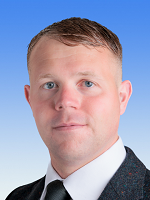
Donald Furman, DO
Dr. Furman received his medical degree from Lincoln Memorial University DeBusk School of Osteopathic Medicine in Harrogate, Tennessee. He completed his General Surgery residency training at Sunrise Health GME Consortium in Las Vegas, Nevada.
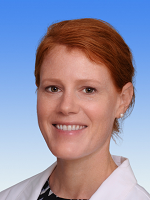
Rebecca Phuoc, MD
Dr. Phuoc received her medical degree at Oregon Health and Science University School of Medicine in Portland, Oregon, and completed her residency training at the University of New Mexico School of Medicine General Surgery Residency Program. Following her postgraduate training, Dr. Phuoc attended the Centro Evangelico de Medicina do Lubango Fellowship Program for International Surgery in Lubango, Angola. Dr. Phuoc is board-certified in General Surgery.
Salary & Benefits
Contact
University of Hawaii Surgical Critical Care Fellowship Program
1356 Lusitana Street 6th Floor, Honolulu, Hawaii 96813
Program Administrator: Lori Bland
Email: surgery@hawaiiresidency.org
Phone: (808) 586-8227 | FAX: (808) 586-3022

